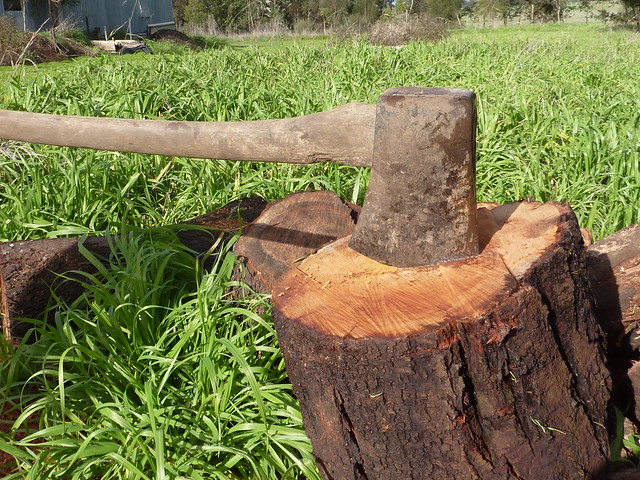Words for chief, leader, prince and related things in Celtic languages.
Words marked with a * are reconstructions.
| Proto-Celtic | *towissus, *tuwestus *tuwissus = act of leading, beginning, leadership *towissākos = chief, primary, first |
|---|---|
| Primitive Irish | ᚈᚑᚃᚔᚄᚐᚉᚔ (tovisaci) = chief (?) |
| Old Irish (Goídelc) | tús, tuus [tuːs] = beginning, forefront toísech [ˈtoːi̯sʲəx] = leader, chief, first, initial, primary |
| Middle Irish (Gaoidhealg) | tús, tuus = act of leading, forefront, precedence, pre-eminence, rank toísech, tósich, toissech = first, former, prior, first in importance, sooner, leader, chief toísechda = first toísecht, taiseachda, taiseachta = chieftainship, act of leading toísenach, taoisinach = leadership, chieftainship |
| Irish (Gaeilge) | tús [t̪ˠuːsˠ] = beginning, commencement, start, origin, forward, leading, position, precedence, pick, choice taoiseach [ˈt̪ˠiːʃəx] = chieftain, leader, man of substance, important person, decent/generous person ; first, former Taoiseach = (Irish) Prime Minister, Taoiseach taoiseacht = chieftainship, leadership |
| Scottish Gaelic (Gàidhlig) | tùs [tuːs] = beginning, origin, inception tòiseach [tɔʃəx] = beginning, front, van, forefront, bow (of a ship); chief of a clan or tribe Tòiseach [tɔːʃɪç] = a Macintosh, any member of Clan MacKintosh tòiseachail [tɔʃəxal] = primitive, rudimentary tòiseachd [tɔʃəxg] = (act of) beginning, starting, precedence |
| Manx (Gaelg) | tosh = chieftain toshiagh = chief(tain), leader, premier, offset, toe, forepart toshiaght = beginning, fore(front), lead, opening, outset, bow (of a ship) Toshiaght Arree = February (“start of spring”) Toshiaght Fouyir = August (“start of autumn”) Toshiaght Gheuree = November (“start of winter”) toshiaghey = to begin, start, initiate |
| Proto-Brythonic | *togwɨs = leadership *towɨssọg = leader, chief, king, prince |
| Middle Welsh (Kymraec) | tywys = forward position, front, fore, leader, lead, guidance towys, tywyssav = to lead, guide, show the way, escort, direct touyssoc, tywyssaỽc, tywyssavc, tywyssawc, tyỽyssaỽc = prince, lore, sovereign, leader, ruler, governor, captain, guide, leader tehuyokaet, tywyssogaeth = principality, kingdom, rule, reign, sovereignty tywysoges = princess, female sovereign, ruler or leader |
| Welsh (Cymraeg) | tywys [təu̯.ˈis] = forward position, front, fore, leader, lead, guidance tywysu, tywys(i)o = to lead, guide, show the way, escort, direct tywysiad = leading, leadership, guidance, direction, introduction, (water) conduit tywysog [təu̯.ˈəsɔɡ/ˈtwəsɔɡ] = prince, lord, sovereign, leader, ruler, governor, captain, guide, leader tywysog(i)aeth = principality, kingdom, rule, reign, sovereignty, supremacy, government tywysogaidd = princely, royal, noble, splendid tywysoges = princess, female sovereign, ruler or leader |
| Old Breton (Brethonoc) | toguisoc = ? |
Etymology: from Proto-Celtic *towissus (leadership), *to- (to(wards)) and *wissus (knowledge), Proto-Indo-European *wéydtus, from *weyd- (to see) [source]. Words from the same roots include pavilion in English, papillon (butterfly, brilliant, versatile and inconstant person) in French, farfalla (butterfly, bow tie, butterly-shaped pasta) in Italian, papion (bowtie) in Romanian, paipala (quail) in Latvian [source].
| Old Irish (Goídelc) | úachtarán = chief, leader |
|---|---|
| Middle Irish (Gaoidhealg) | úachtarán, uachtarán = head, leader, chief, president, governor, ruler, overseer |
| Irish (Gaeilge) | uachtarán [uəxt̪ˠəɾˠɑːnˠ] = president, head, superior, headmaster, landowner (archaic) Uachtarán = President uachtaránacht = presidency, authority, power |
| Scottish Gaelic (Gàidhlig) | uachdaran [uəxgəran] = laird, landowner, proprietor, superior uachdaranach [uəxgərənəx] = superior, paramount uachdaranachd [uəxgərənəxg] = dominion, supremacy uachdaranas [uəxgranəs] = jurisdiction |
| Manx (Gaelg) | eaghtyran(e) = president, superior, chief eaghtyraneagh = presidential eaghtyraneys = presidency |
Etymology: from Old Irish *úachtar (surface, top, cream), from Proto-Celtic *ouxteros (upper), from *(o)uxs- (up) and *wissus (knowledge), Proto-Indo-European *h₃ewp- (up) [source]. Words for Up Above, etc in Celtic languages come from the same roots.
| Proto-Brythonic | *penno-tam-īkos = chief, leader |
|---|---|
| Middle Welsh (Kymraec) | pendewic, pen(n)deuic, pendefig = chief, leader, ruler, king, prince, lord, noble(man), gentleman pendevigiaeth, pendeuigaeth = kingship, principality, supremacy, pre-eminence, domination, government, power pendevigyeid = aristocratic, noble |
| Welsh (Cymraeg) | pendefig = chief, leader, ruler, king, prince, lord, noble(man), gentleman pendefigaeth = kingship, principality, supremacy, pre-eminence, domination, government, power pendefig(i)aidd = aristocratic, noble pendefiges = queen, lady, peeress, noblewoman |
| Old Cornish | pendeuig = prince, chief, noble(man) |
| Middle Cornish (Cernewec) | pendevig, pensevic, pednz(h)ivig = prince, chief, noble(man), principal pednzivigian = nobility, gentry |
| Cornish (Kernewek) | pennseviges, pednsyviges = princess pennsevigeth = principality pennsevik, pednsyvik = chief, noble, prince |
| Old Breton (Brethonoc) | *pendemic = rich (?) |
| Middle Breton (Brezonec) | pynuizyc, pinuisic, pinuizic = rich man pinuizigaez = wealth pinuizic, pinuzic = rich pinuizicat = to enrich, to get rich |
| Breton (Brezhoneg) | pinvidik [pĩnˈviːdik] = rich pinvidikaat = to enrich, to get rich pinvidikaerezh = enrichment, wealth |
Etymology: from Proto-Brythonic *penno-tamos = the most in chief, from *penn (head), from Proto-Celtic *kʷennom (head), the origins of which are not known [source].
More words for prince, chief, ruler, etc can be found in the Celtiadur posts Lord, Ruler and Country and Land.
Sources: Wiktionary, Am Faclair Beag, Online Manx Dictionary, Teanglann.ie, eDIL – Electronic Dictionary of the Irish Language, In Dúil Bélrai English – Old Irish glossary, Geiriadur Prifysgol Cymru, Gerlyver Kernewek, Dictionaire Favereau, TermOfis, English – ProtoCeltic WordList (PDF), Etymological Dictionary Of Proto Celtic




